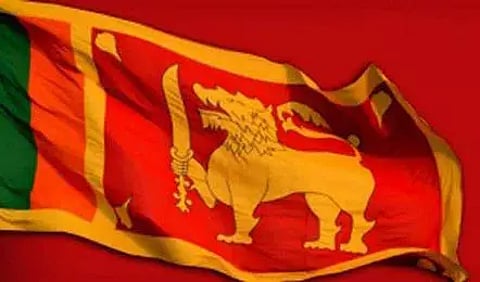

COLOMBO: With the IMF saying that Sri Lanka's full economic recovery is not yet assured, the government on Thursday said it will focus on the recommendations of the global lender and will continue discussions with it to reach a staff-level agreement for the second tranche of the bailout package.
In March this year, the International Monetary Fund (IMF) approved a 48-month, USD 2.9 billion extended arrangement under the Extended Fund Facility (EFF) to support Sri Lanka’s economic policies and reforms.
“We have to take note of points made on tax administration, granting of tax relief and eliminating tax evasion”, said State Minister of Finance, Ranjith Siyambalapitiya.
We are working with a contracted economy and a population hit by economic hardships," Siyambalapitiya said.
Sri Lanka was hit by its worst economic crisis in history when its foreign exchange reserves fell to a critical low and the public came out on the streets to protest the shortage of fuel, fertilisers and essential commodities.
On Wednesday, it emerged that Lanka's second tranche of the bailout package will likely be delayed given the inconclusive nature of the cash-strapped nation's external debt restructuring.
The debt-ridden nation was banking on the release of the second tranche of around USD 330 million at the end of the review as stated by Siyambalapitiya last week.
However, the IMF in the review said more discussions were needed to reach the next staff-level agreement on the external debt restructuring.
The Washington-based global lender, while noting Sri Lanka’s commendable progress in implementing difficult reforms, said "the full recovery of the economy was not yet assured." It stressed the need to strengthen tax administration, remove tax exemptions, and actively eliminate tax evasion.
The IMF had originally set a September deadline for Sri Lanka to restructure its external debt.
The completion of negotiations with external creditors was to culminate with the first review.
The government in June introduced its plan for domestic debt restructuring after which it faced objections from the political and trade unions over its impact on the pension funds.
Domestic debt restructuring (DDR) is a key condition in the IMF programme, through which a bailout package was approved for Sri Lanka.